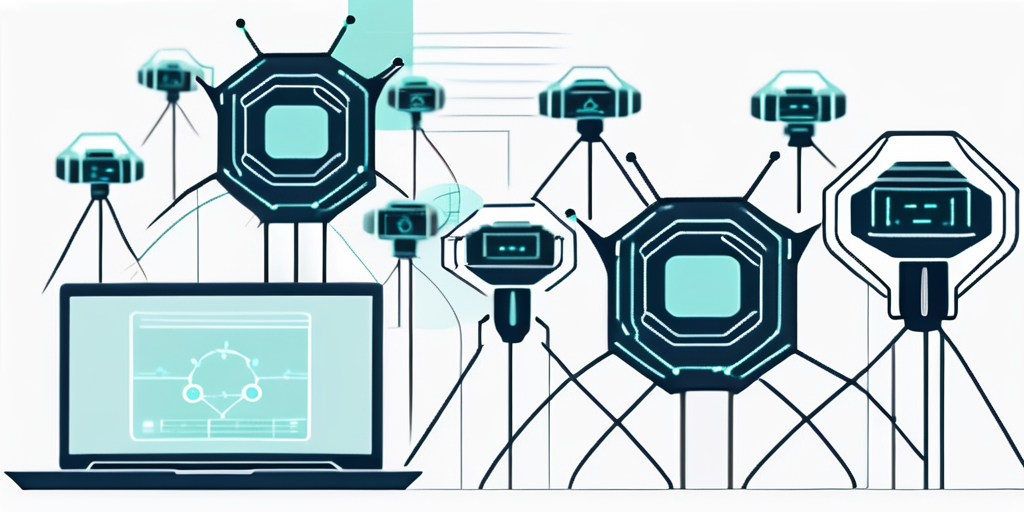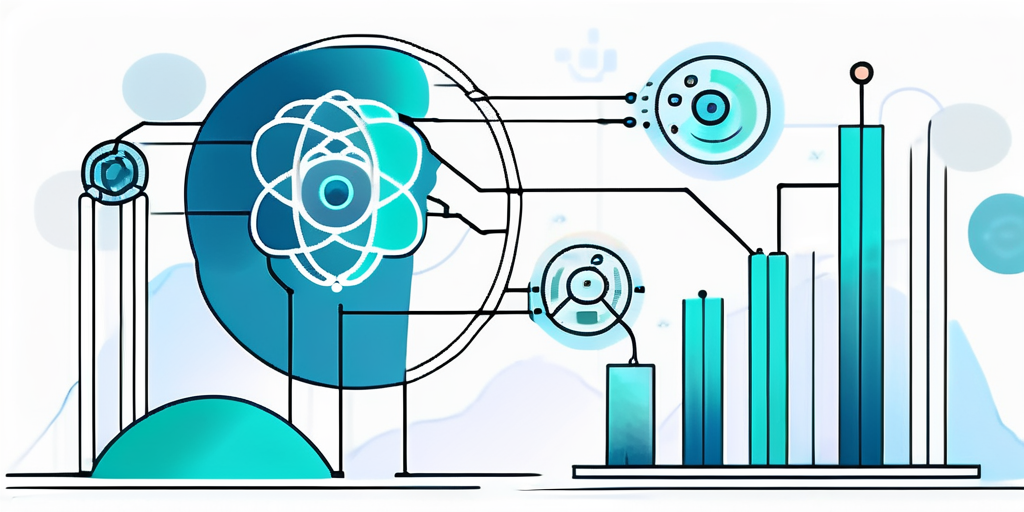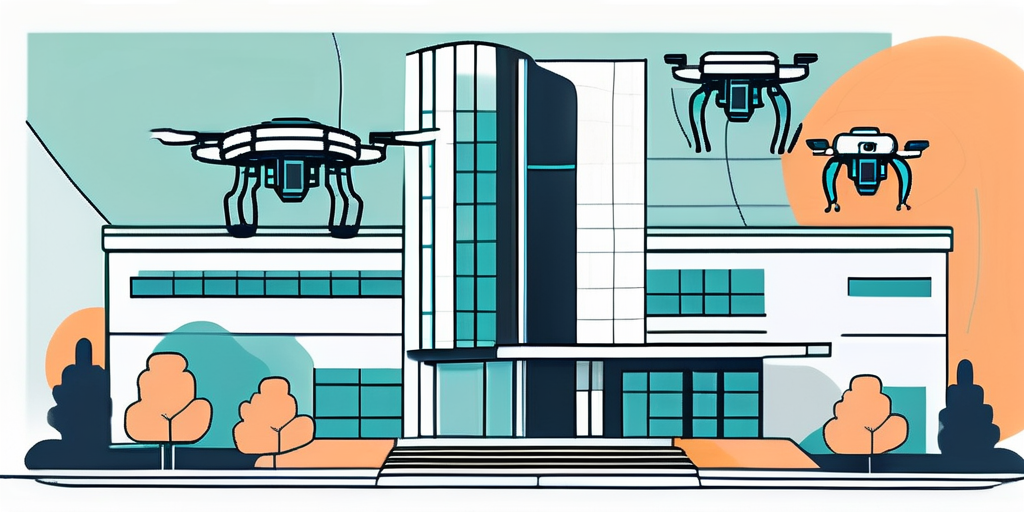AI for Nonprofits: How Artificial Intelligence is Revolutionizing the Nonprofit Sector

The nonprofit sector plays a vital role in addressing societal needs and fostering positive change. However, like any other sector, nonprofits face challenges in achieving their goals efficiently and effectively. This is where artificial intelligence (AI) comes in. AI has the potential to revolutionize the nonprofit sector and empower organizations to better serve their communities.
Understanding Artificial Intelligence and Its Potential
Before delving into the intersection of AI and nonprofits, it is important to define what AI is and explore its capabilities. AI refers to the development of computer systems capable of performing tasks that would normally require human intelligence. These systems can analyze vast amounts of data, learn from patterns, and make informed decisions.
Artificial intelligence, often abbreviated as AI, is a rapidly evolving field that aims to create intelligent machines that can simulate human cognitive functions. These machines are designed to perform tasks such as speech recognition, problem-solving, learning, and planning. The goal of AI is to develop systems that can adapt and respond to new situations, making them incredibly versatile in a wide range of applications.
Defining Artificial Intelligence
Artificial Intelligence encompasses various technologies, including machine learning, natural language processing, and computer vision. Machine learning, in particular, enables computer systems to learn from data and improve their performance over time without being explicitly programmed.
Natural language processing (NLP) is another crucial aspect of AI that focuses on enabling machines to understand, interpret, and generate human language. This technology is behind virtual assistants like Siri and chatbots that provide customer support. Computer vision, on the other hand, allows machines to interpret and understand the visual world, enabling applications like facial recognition and autonomous vehicles.
The Power of AI: Beyond the Hype
Despite the hype surrounding AI, its potential goes beyond just buzzwords. AI has proven its efficacy across sectors, from healthcare to finance. By harnessing the power of AI, nonprofits can enhance their operations, optimize resource allocation, and ultimately magnify their impact.
One of the key advantages of AI for nonprofits is its ability to analyze vast amounts of data quickly and accurately. This data-driven approach can help organizations identify trends, predict outcomes, and make data-informed decisions to better serve their beneficiaries. Additionally, AI can automate repetitive tasks, freeing up valuable time for nonprofit staff to focus on strategic initiatives and building relationships with donors and partners.
The Intersection of AI and Nonprofits
AI offers immense opportunities for nonprofits to overcome challenges and drive positive social change. Let’s explore two key areas where AI can play a transformative role in the nonprofit sector.
The Role of AI in Nonprofit Operations
Nonprofits often struggle with limited resources and tight budgets. AI can help streamline operations by automating repetitive administrative tasks. For instance, AI-powered chatbots can handle routine inquiries, freeing up staff time to focus on more complex issues.
Moreover, AI can also assist nonprofits in optimizing their program delivery. By analyzing data on program effectiveness and impact, AI algorithms can provide valuable insights to help organizations make data-driven decisions. This can lead to more efficient allocation of resources and ultimately enhance the overall impact of the nonprofit’s mission.
AI and Nonprofit Fundraising
Fundraising is a critical aspect of nonprofit organizations. AI can improve fundraising efforts by analyzing donor data and generating insights that inform targeted campaigns. By leveraging AI, nonprofits can identify potential donors, personalize their outreach, and maximize fundraising outcomes.
In addition to donor data analysis, AI can also help nonprofits in predicting donor behavior and preferences. By utilizing machine learning algorithms, organizations can forecast donation patterns, segment donors based on their giving history, and tailor fundraising strategies to different donor segments. This personalized approach can significantly boost fundraising effectiveness and donor retention rates.
The Impact of AI on Nonprofit Efficiency
In addition to optimizing operations and fundraising, AI can significantly enhance nonprofit efficiency in decision-making processes. Let’s explore two key ways AI can empower nonprofits in this regard.
As technology continues to evolve, the role of AI in the nonprofit sector is becoming increasingly vital. Beyond just streamlining administrative tasks and enhancing decision-making processes, AI has the potential to revolutionize how nonprofits operate and achieve their missions. By embracing AI tools and solutions, nonprofits can unlock new opportunities for growth, innovation, and impact.
Streamlining Administrative Tasks with AI
Nonprofits often grapple with time-consuming administrative tasks, such as data entry and report generation. AI can automate these processes, allowing nonprofit staff to allocate their time and expertise towards strategic planning, impactful program development, and building meaningful relationships with stakeholders.
Furthermore, AI can assist nonprofits in managing donor relationships more effectively. By analyzing donor behavior and preferences, AI algorithms can provide personalized recommendations for donor engagement strategies. This personalized approach not only strengthens donor relationships but also increases donor retention rates and overall fundraising success.
Enhancing Decision Making through AI
AI can provide valuable insights by analyzing large datasets and identifying patterns and trends. By utilizing AI-driven analytics tools, nonprofits can make data-informed decisions regarding program effectiveness, resource allocation, and stakeholder engagement. This enables nonprofits to maximize their impact and ensure their resources are directed to areas of greatest need.
Moreover, AI can help nonprofits in forecasting future trends and anticipating potential challenges. By leveraging predictive analytics, nonprofits can proactively address emerging issues, adapt their strategies, and stay ahead of the curve. This proactive approach not only enhances organizational resilience but also enables nonprofits to seize new opportunities for growth and social impact.
Ethical Considerations for AI in Nonprofits
While AI brings numerous advantages, it also raises ethical concerns that nonprofits must address. Let’s examine two crucial ethical considerations when incorporating AI in nonprofit operations.
Artificial Intelligence (AI) has become increasingly prevalent in the nonprofit sector, revolutionizing the way organizations operate and deliver services. Beyond the potential for efficiency and innovation, the integration of AI technologies also brings about a myriad of ethical considerations that demand careful attention and proactive management.
Data Privacy and Security in AI Applications
Nonprofits often handle sensitive data, including personal information of beneficiaries and donors. Implementing robust data privacy and security measures is paramount to protect this information from unauthorized access or misuse. Nonprofits must ensure compliance with data protection regulations and adopt ethical practices governing data usage and storage.
Moreover, in the realm of AI, the collection and utilization of data raise complex ethical dilemmas. Nonprofits must navigate the fine line between leveraging data for impactful decision-making and safeguarding individuals’ privacy rights. Striking a balance between data-driven insights and ethical data practices is crucial to uphold the trust and confidence of stakeholders.
Ensuring Fairness and Transparency in AI Usage
AI algorithms can inadvertently perpetuate biases present in existing data, resulting in unfair outcomes. Nonprofits must exercise caution and regularly audit their AI systems to identify and rectify any biases. It is essential to ensure transparency and accountability in AI decision-making processes to build trust with stakeholders.
Furthermore, the concept of fairness in AI extends beyond bias mitigation to encompass broader societal implications. Nonprofits must consider the potential impact of AI systems on marginalized communities and strive to ensure equitable outcomes for all individuals. By fostering transparency in AI development and deployment, nonprofits can proactively address concerns related to fairness and promote a more inclusive and just society.
Future Trends: AI and the Nonprofit Sector
As AI continues to evolve, its impact on the nonprofit sector will only grow. Let’s explore two future trends that can shape the relationship between AI and nonprofits.
Predicting the Future of AI in Nonprofits
The future holds immense possibilities for AI in nonprofits. Advancements in AI can enable nonprofits to dive deeper into data analytics, enhance their predictive capabilities, and refine their strategies for maximum impact. Nonprofits must stay informed about emerging AI technologies and embrace innovation to stay ahead.
Preparing Nonprofits for an AI-Driven Future
As AI becomes increasingly prevalent, nonprofits must proactively equip themselves with the necessary skills and knowledge to leverage its potential. Investing in staff training and collaboration with AI experts will enable nonprofits to adapt and thrive in an AI-driven future, ultimately benefiting their beneficiaries and communities.
In the dynamic landscape of the nonprofit sector, AI presents a transformative opportunity for organizations to streamline processes, improve decision-making, and drive social impact. By harnessing the power of AI, nonprofits can optimize resource allocation, identify trends in donor behavior, and personalize outreach efforts to maximize engagement and support.
Moreover, the integration of AI technologies such as natural language processing and machine learning can revolutionize how nonprofits interact with stakeholders. These tools can analyze vast amounts of unstructured data from social media, emails, and surveys to extract valuable insights, sentiment analysis, and trends, enabling organizations to tailor their programs and communication strategies effectively.
As you consider the transformative potential of AI for your nonprofit, remember that a strong digital presence is key to maximizing your impact. BlueWing is dedicated to empowering organizations like yours through expert paid media management, ensuring your message reaches the right audience. With our specialized knowledge in the Google Ad Grants program and a commitment to sustainable growth, we’re here to help you navigate the digital landscape with ease. Contact us today to learn how we can amplify your nonprofit’s reach and drive meaningful change together.





